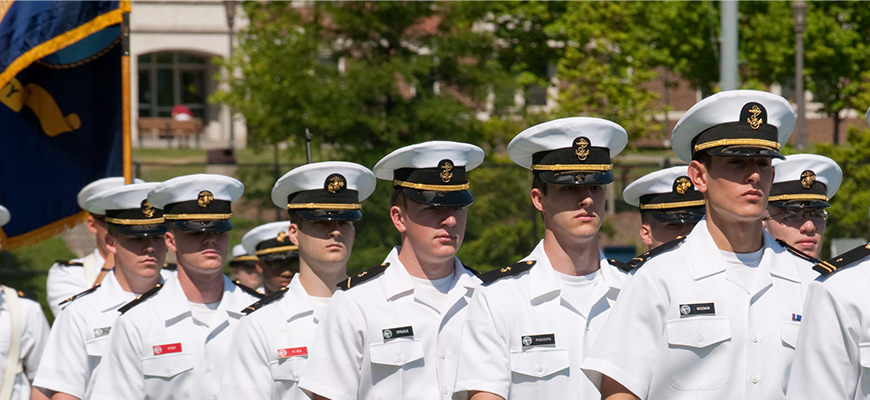
Program Information
Army ROTC
Army ROTC is a college elective you can try out for up to two years with no obligation. Unlike traditional college programs, Army ROTC gives you a wide range of experiences while you work toward a degree. You’ll combine classroom time with hands-on experience, learning skills that are sure to give you an edge over your peers when it comes time to look for a job. Whether you’re planning a career in the Army or the corporate world, Army ROTC is a smart elective course to take. As part of Army ROTC, you’ll be in the company of a diverse group of individuals with broad interests.
Navy ROTC
The NROTC Program was established to develop midshipmen mentally, morally, and physically and to imbue them with the highest ideals of duty, and loyalty. They are also instilled with the core values of honor, courage, and commitment in order to commission college graduates as naval officers who possess a basic professional background, are motivated toward careers in the naval service, and have a potential for future development in mind and character. They are well-prepared to assume the highest responsibilities of command, citizenship, and government.
Air Force ROTC
The mission of AFROTC Detachment 165 is to recruit and retain young men and women, and instill in them leadership ability, professionalism, and inspire them to exemplify the characteristics of the highest quality Air Force officer.
Cadet Spotlight
Blurb / Gallery Set
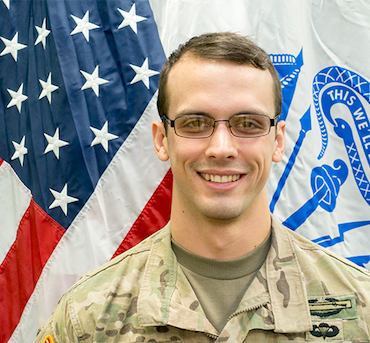
Alexander Herbert, Sacramento, California
Program: Army
Year: Senior
Major: Nuclear Engineering
“You can’t settle for bare bones, you have to constantly be reaching and working with people so you build really strong relationships to improve yourself.”
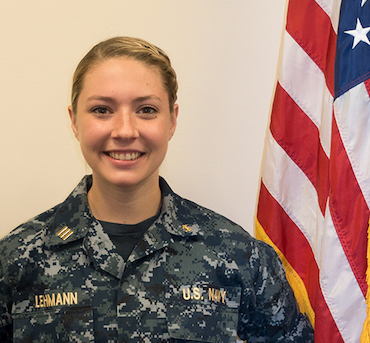
Belle Lehmann, Boone, North Carolina
Program: Navy
Year: Junior
Major: Industrial Engineering
“There are a lot of strong leaders at Tech. There’s a lot of innovative leaders. So being surrounded by these people can influence you.”
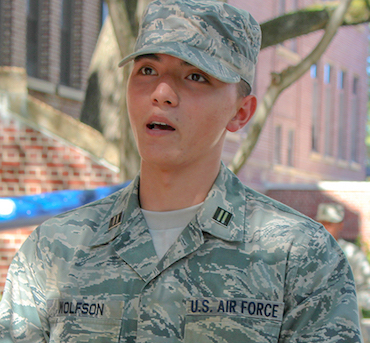
Samuel Wolfson, Austin, Texas
Program: Air Force
Year: Junior
Major: Mechanical Engineering
“In the ROTC training environment, we fail and we fail often. We learn from our mistakes so that we will be ready and equipped for active duty. If you decide to join the program, remember not to be afraid of failure. Be bold and be prepared to step out of your comfort zone. The program teaches a lot and expects dedication from cadets early on. It pays to be mentally ready for a challenge and have a willingness to learn.”
Views from the Commanders
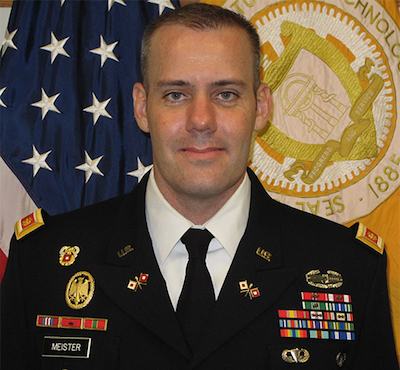 Lieutenant Colonel John Meister, Army
Lieutenant Colonel John Meister, Army
Lieutenant Colonel Meister received a commission in the Army Signal Corps, the branch that manages communication and information systems, in 2000. His assignments have included South Korea, Hawaii, Colorado, Washington, D.C., and Fort Bragg, North Carolina. He also served three tours of duty in Iraq and two in Afghanistan. He now leads the Army ROTC program that serves Georgia Tech, Emory University, Agnes Scott, and Kennesaw State University.
On leadership:
My leadership philosophy is to never let a cadet sell themselves short, to put them in positions were they are out of their comfort zones and challenge them. Over time they will truly understand what they are capable of and will grow as both a person and future Army officer.
On his most fulfilling assignment in the Army:
Without a doubt serving as the Professor of Military Science at Georgia Tech. It’s such a privilege and unique experience to mentor and teach future officers who will lead our nation’s Army into the coming decades. Having an influence in shaping the human aspect of the Army is such a rewarding benefit of the position.
On what the Georgia Tech community know about today’s ROTC cadets:
They are some of the smartest young kids in the U.S., most majoring in STEM curricula. They have volunteered to serve their Nation while the world is in such a tumultuous, complex state. On top of their rigorous studies at a prestigious institution, these cadets spend 20-30 hours per week with their ROTC program learning tactics, critically thinking about complex problems, and volunteering to serve their community. The Georgia Tech ROTC Cadets are top performers academically, morally and ethically straight, and some of the best young kids this institution produces.
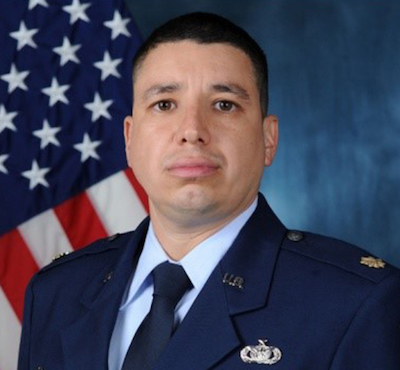 Lieutenant Colonel Juan Silva, Air Force
Lieutenant Colonel Juan Silva, Air Force
Lieutenant Colonel Silva is a career security forces officer with the Air Force. He deployed multiple times in support of Operations Iraqi Freedom and Operation Enduring Freedom. Prior to his appointment as commander of the Air Force ROTC program at Georgia Tech, he was a security forces squadron commander at Langley Air Force Base in Virginia.
What is your personal leadership philosophy?
My philosophy is to keep everyone on a common operating picture, give them good guidance and intent while providing them the time and resources to accomplish the mission. I want to create a culture of trust through transparency and ensure accountability is occurring at all levels in the organization.
What has been your most interesting/fulfilling assignment in the Air Force?
The four times I have commanded an organization, to include my current position at Georgia Tech, have been the most fulfilling. I cannot say one assignment has been more fulfilling then the other as each has had its challenges and satisfying accomplishments. For me, the people I have met and watching them succeed and grow as leaders has been the most rewarding.;
What should the Georgia Tech community know about the cadets training to be officers in your program?
Once they enter active duty, the sacrifices these airmen will make for our nation will be tremendous. They will reach their first duty location and soon after will be deployed throughout the world protecting our national interest, freedoms and civil liberties we so much enjoy. Some will miss significant life events: birthdays, holidays, anniversaries and, for some, the birth of their children. Continued support from our community is much appreciated and heartfelt. With your support, the innovation instilled from Georgia Tech in our future military leaders, our community partners and our Joint Force team, we will continue to live by the hallmark of the United States of America; protecting our nation and helping those in need around the world to ensure peace and prosperity.
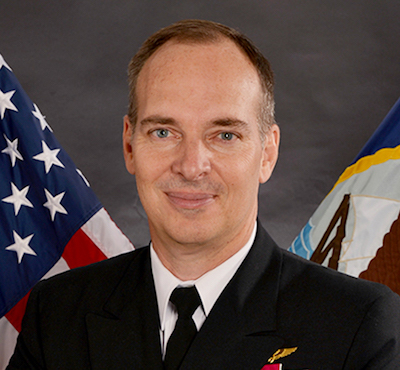 Captain Baron Reinhold, Navy
Captain Baron Reinhold, Navy
Captain Reinhold graduated from the U.S. Naval Academy in 1990 with a Bachelor of Science degree in history. He began his naval career as a naval flight officer — a Navy officer who operates weapons or sensor equipment aboard aircraft. He later held command and staff positions in Bahrain, Nebraska, and Hawaii. He is a recipient of the Legion of Merit and the Bronze Star, among other awards.
